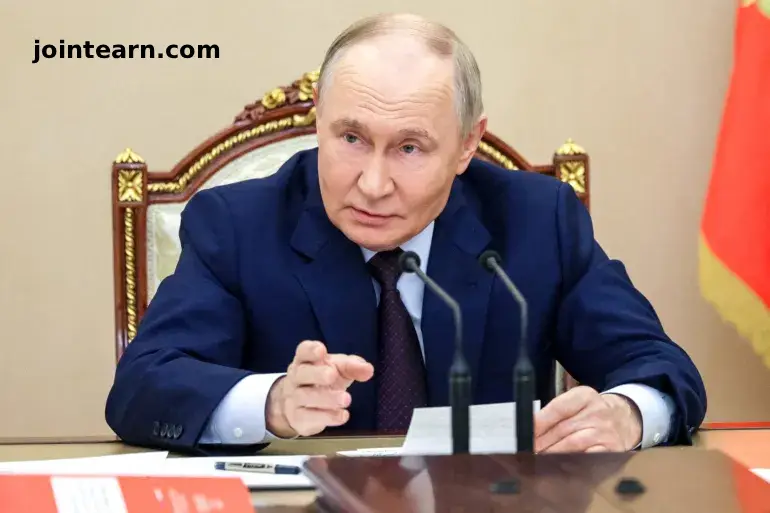
Russian President Vladimir Putin has instructed top Kremlin officials to draft proposals for the potential resumption of nuclear weapons tests, in response to US President Donald Trump’s recent order to restart testing after a decades-long hiatus. The move signals growing tensions between the world’s two largest nuclear powers and raises concerns about a new nuclear arms escalation.
Putin Orders Proposals on Nuclear Testing
Speaking to Russia’s Security Council on Wednesday, Putin stated that if the United States or any signatory to the Comprehensive Nuclear-Test-Ban Treaty (CTBT) conducts nuclear tests, Russia would be obligated to take reciprocal measures.
He directed the Foreign Ministry, Defence Ministry, intelligence services, and other agencies to gather information, analyze potential responses, and submit coordinated proposals regarding preparations for Russian nuclear testing.
Putin’s statement comes after the US announced plans to “immediately” resume nuclear testing, a move intended to match other nuclear powers and respond to Moscow’s recent missile developments.
Context of Rising Tensions
The US has not conducted nuclear tests since 1992, following a moratorium instituted by former President George H.W. Bush after the collapse of the Soviet Union. The recent decision by Trump, announced on October 30, followed his criticism of Russia’s Burevestnik nuclear-powered missile tests and increasing frustration over Moscow’s actions in Ukraine.
Trump cancelled a planned summit with Putin in Hungary and imposed sanctions on Russian oil firms, marking the first such measures since his return to the presidency in January 2025.
Russian Officials Emphasize Readiness
Russian Defense Minister Andrei Belousov said Washington’s actions significantly elevate the “level of military threat to Russia” and stressed the importance of maintaining Russia’s nuclear forces to inflict unacceptable damage if necessary.
General Staff Chief Valery Gerasimov added that Russia must act promptly to ensure that it can respond effectively to US actions. State news agency TASS reported that no specific deadline was given for the drafting of proposals. Kremlin spokesman Dmitry Peskov clarified that Russia would take the necessary time to fully assess the intentions of the United States.
Nuclear Arsenal Overview
Russia and the US remain the largest nuclear powers globally. Estimates by the Center for Arms Control and Non-Proliferation (CACNP) suggest Russia has 5,459 warheads (1,600 active), while the US possesses 5,550 warheads (3,800 active). China, France, Britain, India, Pakistan, Israel, and North Korea make up the remainder of nuclear-armed nations.
Historically, the US last exploded a nuclear device in 1992. Since 1996, only a few countries—India, Pakistan, and North Korea—have conducted nuclear tests. Experts warn that renewed nuclear testing could destabilize global security and trigger an international “action-reaction cycle” potentially leading to a new nuclear arms race.
Global Repercussions and Expert Commentary
Security analysts caution that any resumption of nuclear-explosive testing could have severe environmental, geopolitical, and security consequences. Andrey Baklitskiy, senior researcher at the UN Institute for Disarmament Research, warned that Russia’s response illustrates the risks of escalating tensions between nuclear powers, saying:
“No one needs this, but we might get there regardless.”
The situation underscores the delicate balance of nuclear deterrence and the potential for renewed arms competition if testing resumes.


Leave a Reply